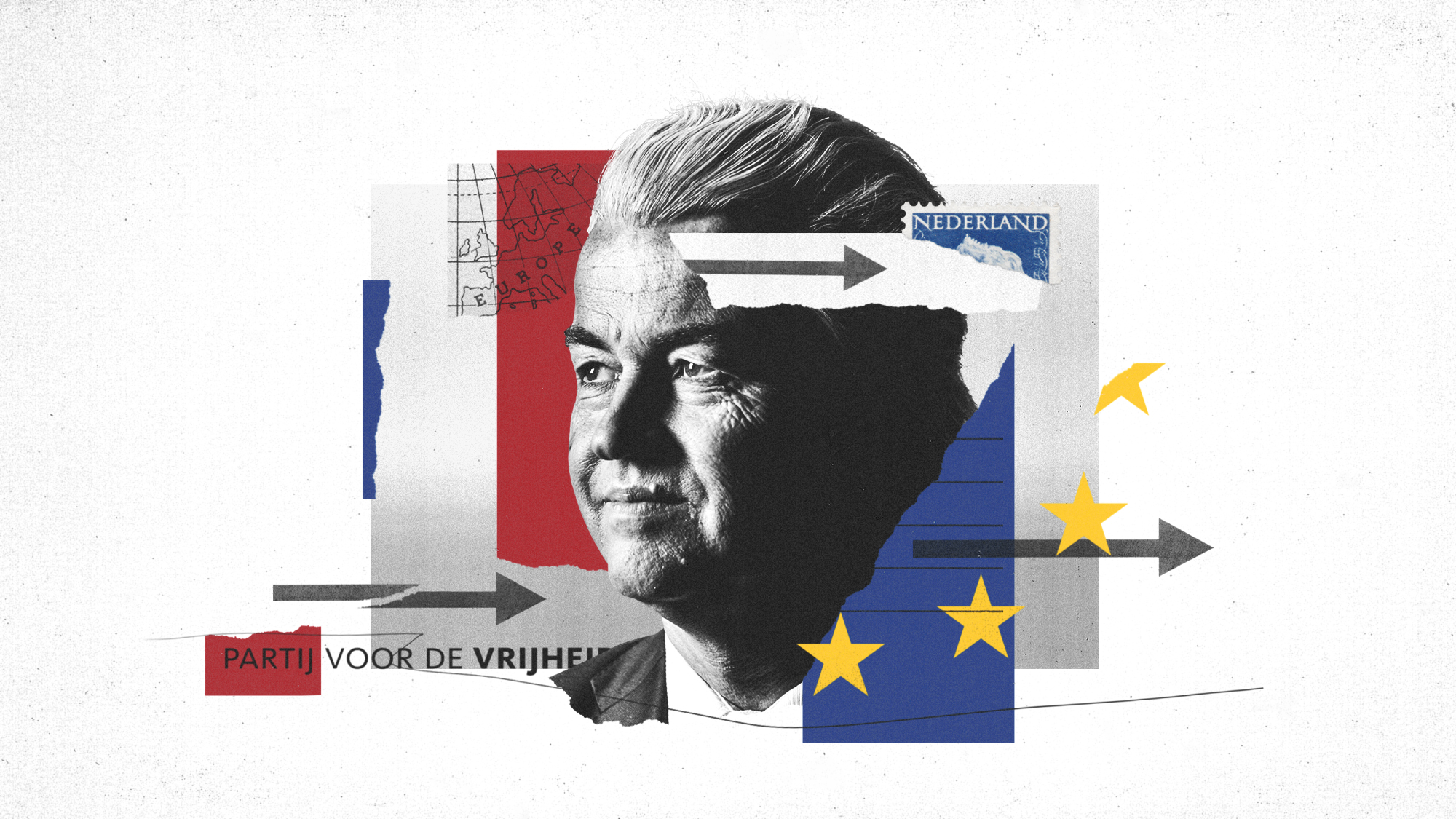Et tu, Brussels: is Dutch far-right victory a bellwether for Europe?
Geert Wilders wins shock election with his anti-Islam, EU and Ukraine stance

A free daily email with the biggest news stories of the day – and the best features from TheWeek.com
You are now subscribed
Your newsletter sign-up was successful
Far-right, anti-immigrant populist Geert Wilders has won a surprise victory in the Dutch general election, sending a clear message to Brussels about the strength of feeling across Europe.
With most of the votes counted, Wilders' Freedom Party (PVV) is forecast to win 37 out of the 150 seats in parliament. That puts him well ahead of his nearest rival, a left-wing alliance led by former EU commissioner Frans Timmermans, which is likely to have won 25 seats.
The result has "shaken Dutch politics and it will send a shock across Europe too", said the BBC. The PVV's victory has come after Wilders said he would hold a binding referendum on Dutch membership of the European Union, as well as promises to halt all aid to Ukraine, and withdraw the Netherlands from global climate pacts.
The Week
Escape your echo chamber. Get the facts behind the news, plus analysis from multiple perspectives.

Sign up for The Week's Free Newsletters
From our morning news briefing to a weekly Good News Newsletter, get the best of The Week delivered directly to your inbox.
From our morning news briefing to a weekly Good News Newsletter, get the best of The Week delivered directly to your inbox.
Wilders is known for his anti-immigration, Islamophobic views. In addition to wanting immigration to be slashed, he has also called for the Koran to be banned and mosques to be closed – rhetoric he toned down in the run-up to the election.
The result puts him in line to lead talks to form a new coalition and possibly become the country's prime minister in a historic upset. But centrist parties in the Netherlands could well club together to keep Wilders out of power.
What the papers said
Seven years after Britain voted to leave the EU, "a so-called Nexit ballot was a core plank of the far-right leader's ultimately successful offer in the Netherlands", said Politico. And while Wilders has "softened" his anti-Islam sentiments in recent weeks, "there are no signs he wants to water down his Euroskepticism after his shock election victory".
Polling suggests that the Dutch public are unlikely to vote for a "Nexit", but even so, "a Wilders-led government in The Hague will still be a nightmare for Brussels".
A free daily email with the biggest news stories of the day – and the best features from TheWeek.com
A seat at the EU summit table for Wilders would "transform the dynamic" should he join other far-right and nationalist leaders already in post across Europe. "Suddenly, policies ranging from climate action, to EU reform and weapons for Ukraine will be up for debate, and even reversal."
The result is a "historic" one for the Netherlands, where "a populist radical right party [had] never before gained more than 20 percent of the vote", said Sarah de Lange, a politics professor at the University of Amsterdam, speaking to Politico's Brussels Playbook. "Few populist radical right parties in Western Europe have come first in the elections," she said, adding that the PVV is "among the most radical of the populist radical right parties with respect to its stances".
The Netherlands has often been a "bellwether" for issues that resonate across Europe, said Playbook. Dutch voters are concerned about migration, the cost of living and housing – all of which could prove to be key in next year's EU elections.
What next?
There is no guarantee that Wilders will be able to form a coalition and actually govern. Indeed, the last government took a record 271 days to be formed.
But Wilders' victory has come at a time when the far-right is rising across Europe, with many such figures hailing the election result as a sign of things to come for the bloc as a whole. "The winds of change are here!" wrote Victor Orbán on X, the far-right leader who won a fourth consecutive term as Hungary's prime minister last year.
The far-right has also been successful in Italy, with Giorgia Meloni winning power for her Brothers of Italy party, while in France, Marine Le Pen's National Rally is polling in second place, as is Alternative für Deutschland in Germany. Far-right parties are also topping the polls in Austria and Belgium.
The European elections, set for June 2024, are "likely to see the far right entrench itself more deeply into the political landscape", said The Conversation. National voting intention polls suggest that extreme right-wing parties could clinch up to 180 seats in the European Parliament, compared with about 130 in the current legislature.
And should centrist parties lose an "absolute pro-European majority" in the elections, "there is a risk that Europe will be ungovernable" at a time when unity is crucial amid international challenges in Russia, China and the US, warned Stéphane Séjourné, the leader of liberal Renew Europe group, speaking to Brussels Playbook.
Sorcha Bradley is a writer at The Week and a regular on “The Week Unwrapped” podcast. She worked at The Week magazine for a year and a half before taking up her current role with the digital team, where she mostly covers UK current affairs and politics. Before joining The Week, Sorcha worked at slow-news start-up Tortoise Media. She has also written for Sky News, The Sunday Times, the London Evening Standard and Grazia magazine, among other publications. She has a master’s in newspaper journalism from City, University of London, where she specialised in political journalism.